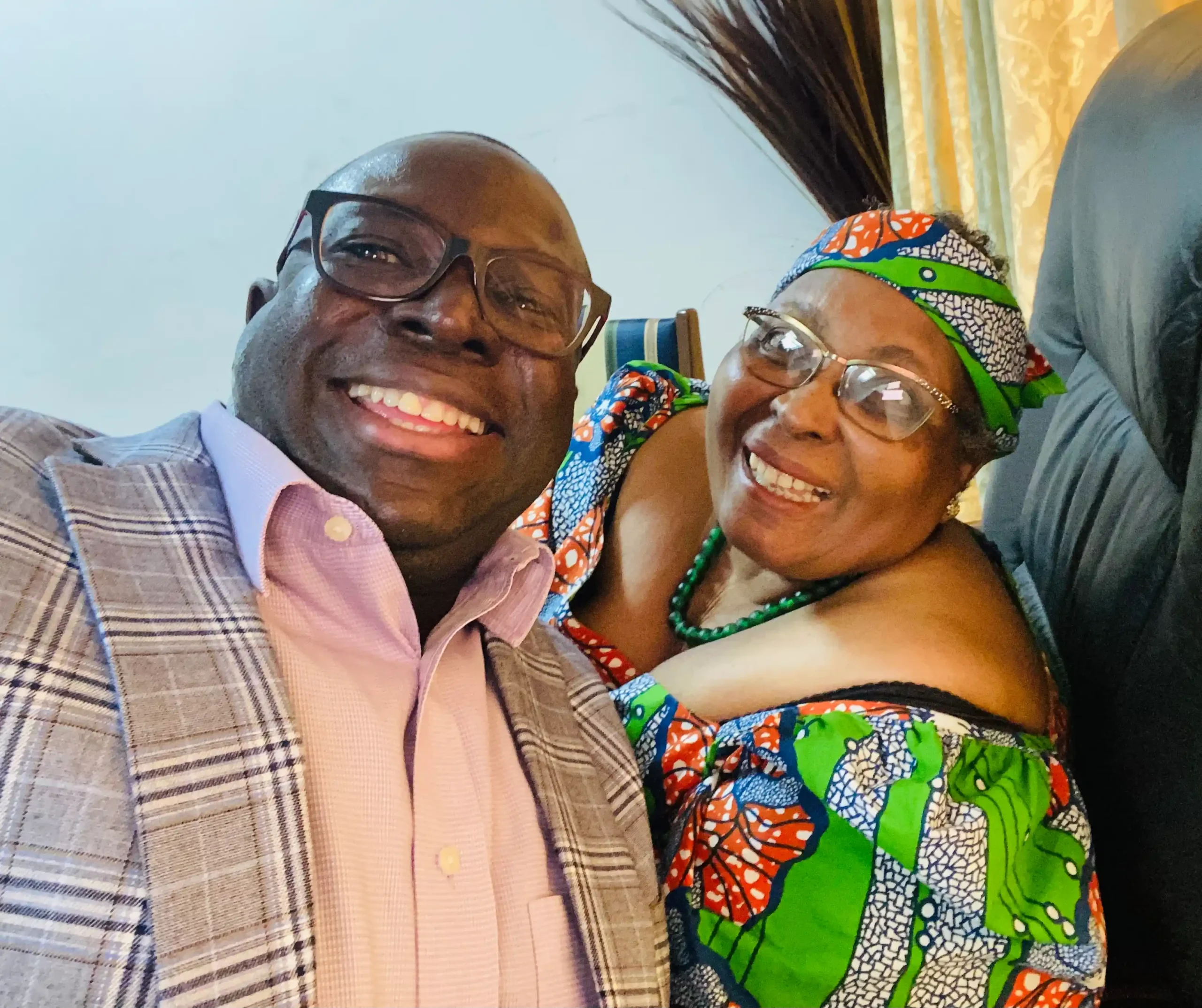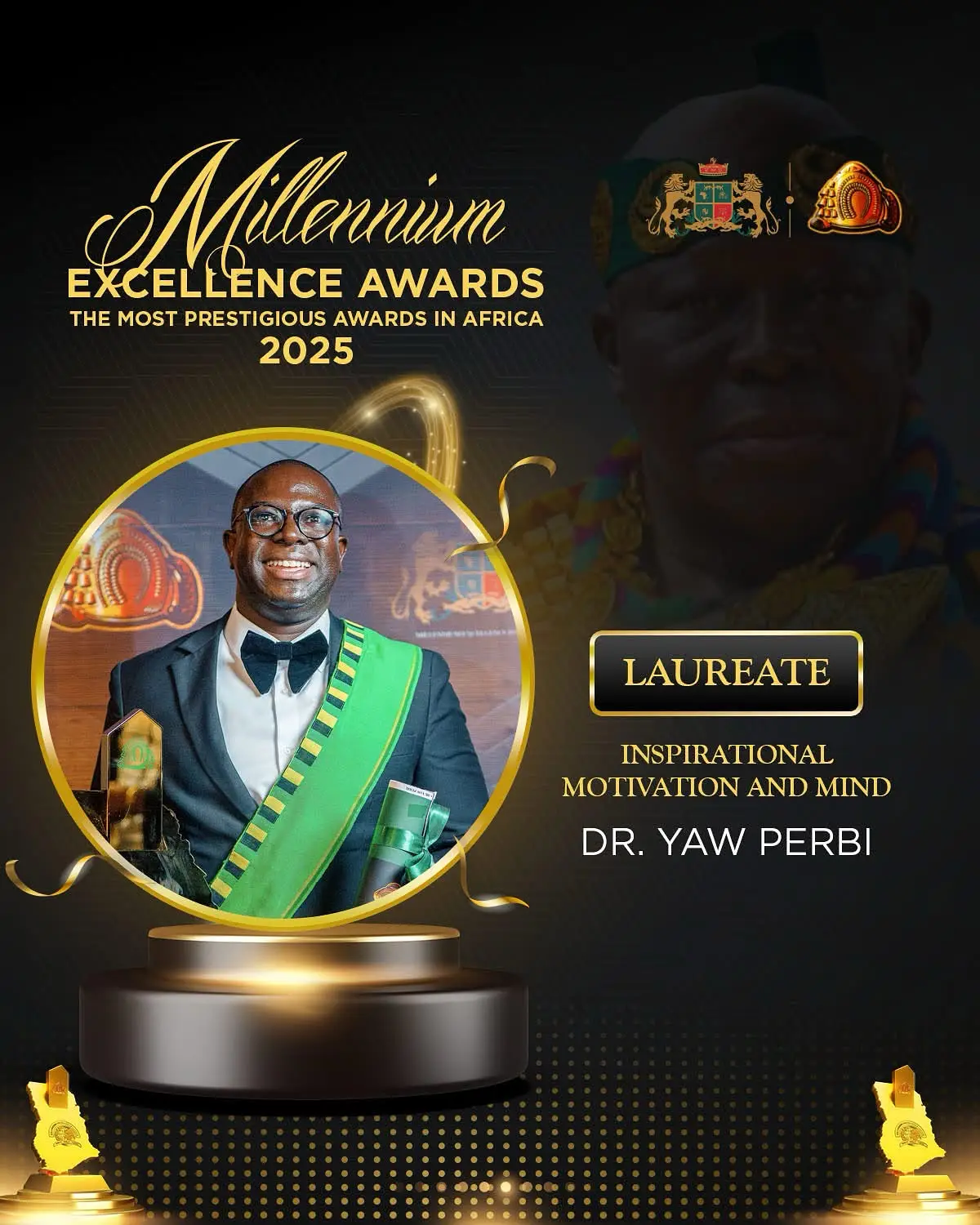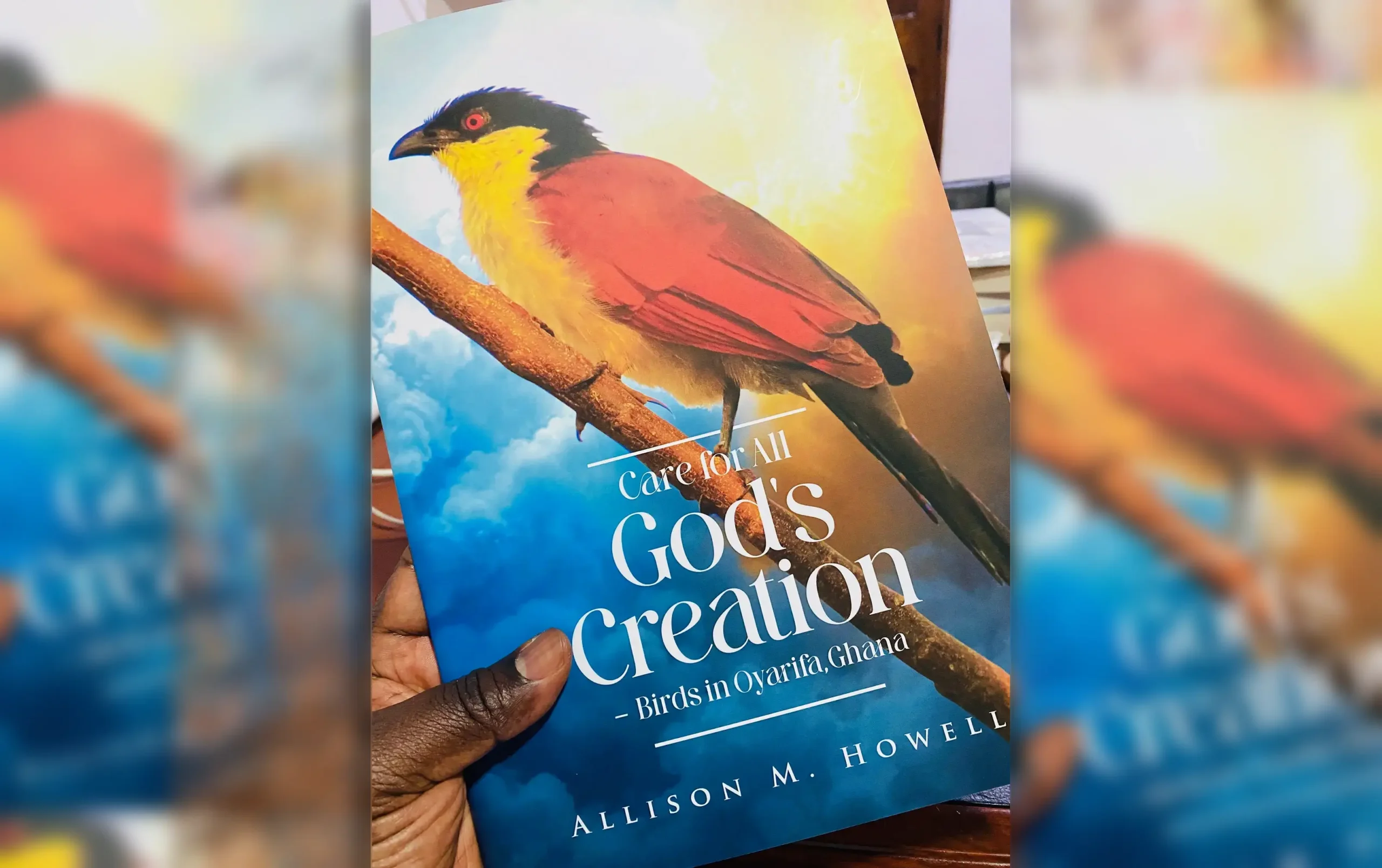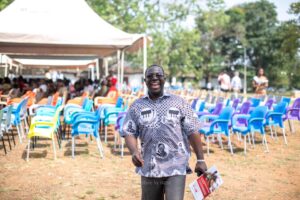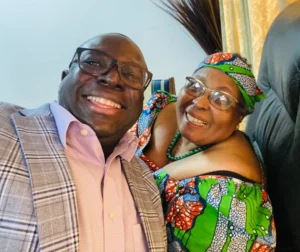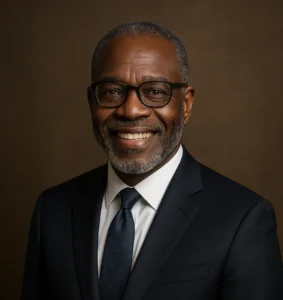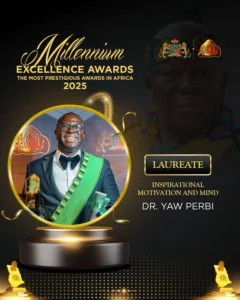There are seismic spiritual shifts among the nations in nearly every generation which redefine socioeconomic and other key realities. We are in the midst of one right now but few notice it. As they say, “the fish in the water doesn’t see the water.” Part III.
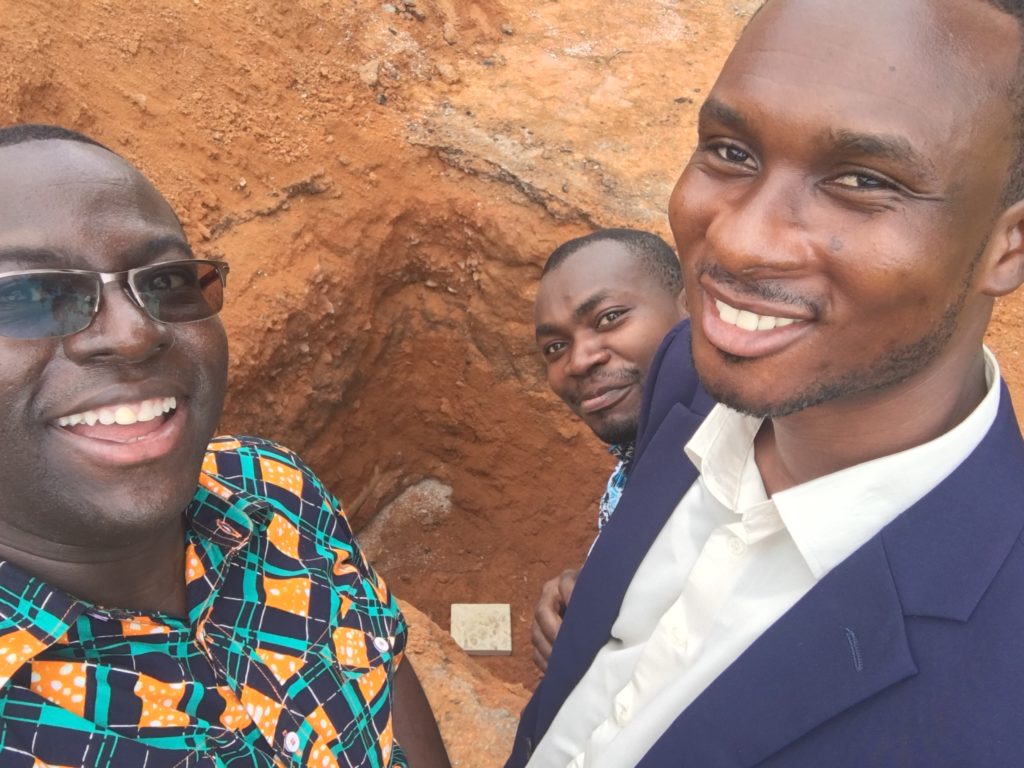
Sharing the joy of the National Cathedral groundbreaking moment (hole in ground with foundation stone from Jerusalem in the background) with two ‘next generation’ friends from Scripture Union and the Ghana Fellowship of Evangelical Students. Those two organizations have laboured to build the Ghanaian Christian ‘software’ for decades; may the ‘next gen’ see some ‘hardware’ too!
STATE-CHURCH PARTNERSHIP
In Part II of my cathedral trilogy I made mention of my alma mater, Achimota School. I still find it super intriguing that as a government institution the seventh and final ideal upon which the school was built was “the belief on which all else rest, in Jesus Christ as the revelation of all time and all people, of the love of God, and as the guide and pattern for our lives.” Today, postmodern Ghanaians cannot seem to wrap their minds around why the government of the day will support a clearly Christian venture even despite the fact that there are more Christians in the country now than there were in 1927. Meanwhile, the government of Ghana knows very well that without the Church’s partnership in education, health, agriculture etc. it cannot even run the country!
Many have criticized the ‘amorphous’ state-church partnership in the putting up of the National Cathedral Ghana. To be clear, the government is only gifting the land and seed money; the body of Christ in Ghana is to raise the remainder of the money for the project. I personally like that test. If truly, the majority of Ghanaian Christians are not in favour of building a national Christian monument of this stature to the glory of God at this time then this project should die a natural death because there will be no funds from government to complete it. On the other hand, if “the gracious hand of God” is upon the project, then like Nehemiah and Ezra who popularized that precious phrase, the heavenly King will provide a few strategic people and places to provide what is necessary to build and complete it in ‘fifty-two days.’
It is a bold move by the government of Ghana, this state-church partnership, in an era where many misunderstand, even misconstrue, the idea of ‘separation of church and state.’ It is heartwarming, to me, that the Executive branch of government’s decisive step in this direction was affirmed by the recent Supreme Court ruling to have the state unashamedly associate herself with the Christian community while providing the congenial environment for all other faiths to practice and even flourish. The Republic of Ghana’s Supreme Court’s ruling that “The State is free to lend support or aid to a religious group if it deems such beneficence to be for the good of the nation” is in order. According to the ruling, “Obviously, secularism in the context of the Ghana Constitution must be understood to allow, and even encourage State recognition and accommodation of religion and religious identity.”
Increasingly voices like Miroslav Volf have decried the challenge to and shrinking of faith in the public space. Ghanaians want to claim Ghana as a purely secular state yet what exactly is secular about borrowing the name of Almighty God in the national anthem and national pledge and swearing in national officers, including the President, by the Christian Bible. It is a good thing that this project is not solely a government one without the Christian community in Ghana not having skin in the game and a sense of ownership. On the other hand, it is a very welcome thing for the government to provide a logistical head start, legal framework and leveraging its convening power on behalf of the body of Christ.
In the President’s own words at the January 03, 2020 cathedral fundraising event in Kumasi: “It is my earnest wish that the building of the national cathedral should not be a burden on the state. That is why we are mobilizing the Christian community at home and abroad to join in partnership to raise the needed resources to build the cathedral. We seek to build this partnership on the rich history of the church’s involvement in our nation’s development. From agriculture, education, health amongst others, the church has been a major contributor to our national life and a strong partner of the state—which has chosen for its part to donate the land and a modest seed fund for this development in the partnership… This will be a historic coalition…” Indeed, the European missionary thrust of the 15th to 19th Century could not have been accomplished at the rate and scope it was without royal backing and national government resources of the Portuguese, Danes, English and such. This is not without it’s challenges, I know. But it’s our turn now.
Today, in the postmodern secularization of governments and separation of church and state we forget the things that made the countries we call “great” and “developed” today what they are–their Judeo-Christian roots. Even they forget the Christian ethos from which they were hewn! Shall we at least copy their foundations for the next 150 years and develop too and not buy into their current memory loss? The idea of a “Great Church for National Purposes” that was “non-sectarian and nondenominational” was not an afterthought in the design of the US capital, for example. Plan of the Federal City was developed in 1792 for Washington DC and discussed with George Washington, America’s first president. I will soon show, in my last point in this article, how the founding fathers of Ghana too envisaged a nation whose God is the LORD.
LEADERSHIP LINK
The Ghanaian Church is leading the world but we cannot lead our land? The most multinational church in the world today (with 106 nationalities) is pastored by a Ghanaian, church denominations have originated from Ghana and established presence in over 100 nations, the Global Christian Forum is headed by a Ghanaian, the Lausanne Movement even once described yours truly as occupying “a strategic global leadership role.” Several of the heads of churches that have spread from Ghana to multiple nations are leading this cathedral effort as advocates and trustees. Could they know and understand something that the rest of us rank and file members do not yet? The head of the largest and most global denomination in the country, Apostle Eric Nyamekye of the Church of Pentecost, says unequivocally: “Let’s unite behind the national cathedral.” Are all these seasoned, godly leaders of different persuasions of the Christian faith wrong about the national cathedral? If they are, then we’re in serious trouble as a nation!
Unity is key to all missions, particularly to the mission of God who is Himself completely one—Father, Son, Spirit. The Church has no mission without love and unity. Although there seems to be disagreement among a section of Christians about the relevance and priority of this colossal project in some quarters, on the contrary I have never seen the various denominational leaders in the country as united in their diversity over one thing like in this endeavour. Historically, Ghanaian Christians have never really been united enough to have one authoritative voice; there are at least three: the Christian Council of Ghana, the Catholic Bishops Conference and the Ghana Pentecostal and Charismatic Council. Take a look at the board of trustees of the National Cathedral Ghana and you will see an unusual confluence of the heads of denominations from all three Christian streams in our Republic at the table. I look to the leadership of those Jehovah, the Great Shepherd of the sheep, has placed over us in this dispensation as his under-shepherds, and trust that I can follow them as they follow Christ.
ELEPHANT IN THE CATHEDRAL
Whether we like it or not, there is a political aspect to religion just as there is a religious aspect to politics. The ‘elephant in the cathedral’ I speak of is not the New Patriotic Party’s mascot; no. The ‘elephant in the room’ is Islam. The fact that there is an Islamization of Ghana agenda is not unknown to some of us (it will require an entirely different lengthy, evidence-based piece at another time). Most countries in West Africa are either majority Muslim or about half so. Ghana remains a hub of Judeo-Christian vibrancy and as long as some of us are alive, we would want to keep it that way (and I’ll explain). This displeases many Mohammedans although the Judeo-Christian way of the 71% of Ghana’s population has allowed incredible freedom for a Muslim minority to have a couple of vice-presidents of our Republic, several ministers of state, a whole ministry for development of Zongos, state facilitation of pilgrimages to Mecca (at significant cost to the state), and freedom of worship to the extent of building one of the largest mosques in Africa on government-gifted land! Yet very much like Islam, that is not enough; they want it all.
I am so happy that our Muslim friends (and I have many!) can flourish in countries with majority Christians like Ghana, the USA, Canada, England and the like. Unfortunately, that favour isn’t reciprocated in Islamic republics and/or countries with Muslim majorities. As the debate over the cathedral raged one Muslim cleric in Accra even had the nerve to say that a cultural centre for all religions rather should’ve been built by government and not a cathedral to the God of the Christians. Ah! The National Cathedral Ghana is an emphatic statement that the Almighty God sang to in our national anthem and prayed to in our national pledge, is the Almighty God of Abraham, Isaac and Jacob and Father of our Lord Jesus Christ.
Why a national bias towards Christianity? I side with a couple of the founding fathers of the nation state Ghana. First is the one who actually christened us ‘Ghana’ instead ‘Gold Coast.’ Hear the erudite philosopher: “Christianity has all the values of an enlightened civilization that modern philosophy and modern society and modern democracy can give us… It is my view that this nation, above all, must attain the civilization of a Christian people if she is to be capable of fitting herself for her role, a mighty role in Africa…” (Danquah 1960). Said another, Dr. Ephraim Amu, regarding ‘The Path that Leads to National Greatness’: “our highest and greatest aspiration should be the kingship of God in individual hearts and throughout the nation and the whole continent” (Amu 1960).
A statement in the Cape Town Commitment of The Lausanne Movement should remind all and sundry that for us Christians, “Upholding human rights by defending religious freedoms is not incompatible with following the way of the cross when confronted with persecution. There is no contradiction between being willing personally to suffer the abuse or loss of our own rights for the sake of Christ, and being committed to advocate and speak up for those who are voiceless under the violation of their human rights. We must also distinguish between advocating the rights of people of other faiths and endorsing the truth of their beliefs. We can defend the freedom of others to believe and practices their religion without accepting that religion as true.” I cannot say the same for Islam.
CONCLUSION
We Africans are the descendants of those who built gigantic pyramids to honour dead pharaohs; do we now not have what it takes to build a monument to the glory of the Most High living God? The postmodern notion that faith has no place in the public space is scandalous, especially to the ‘incurably religious’ African. The National Cathedral Ghana is about more than a building; it is a key ingredient in the complex endeavour of nation building.
There are seismic spiritual shifts among the nations in nearly every generation which in turn redefine socioeconomic and other key realities and Ghana and Africa are in the midst of one such colossal change right now. Although few notice it, I hope this trilogy has thrown more light on the stirring of the waters going on in the realms of the spirit. Be warned that the smartest, most logical, most professional and other such voices we tend to listen to as ‘voices of reason’ in a modern democracy do not necessarily have the spiritual ability to discern the presence and activity of the Holy Spirit of God in our midst (I do not claim to be any better).
Even the President, I believe, is being moved by a Force greater than himself and buoyed upon a phenomenon he can neither fully comprehend nor control, making a stupendous move to advance a national cathedral vision that could even cost him an election as a politician. I reiterate that the extent that a National Cathedral advances God’s three-fold mission on earth as it is in Heaven, it is worthy of support of all who call on the name of the LORD and are called by the name of His Christ. History is being written right now by the missionary God. You watch and see. Time will tell; eternity too.
I am convinced: “The God of heaven Himself will prosper us; therefore we His servants will arise and build” (Nehemiah 2:20).
__________
In case you missed it, Part I of this trilogy may be found here.
References
Amu, Ephraim. 1960. ‘The Path that Leads to National Greatness,’ May 22, 1960.
Danquah, J.B. 1963. “African Culture and African Religion,” 15th March, 1963.
The Lausanne Movement. 2011. The Cape Town Commitment. Peabody, MA: Hendrickson Publishers.



